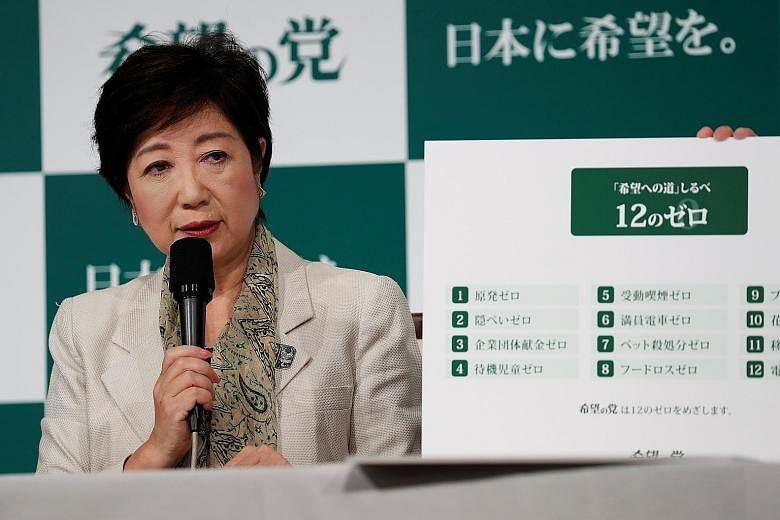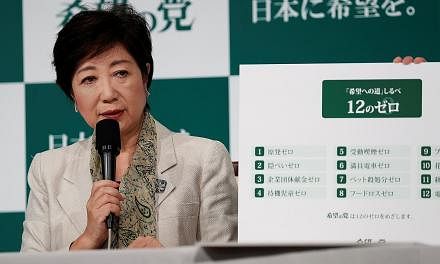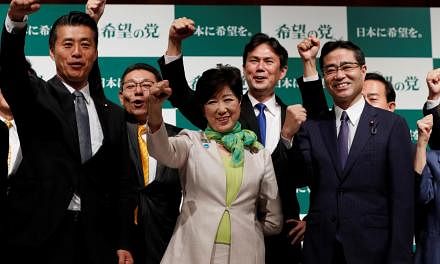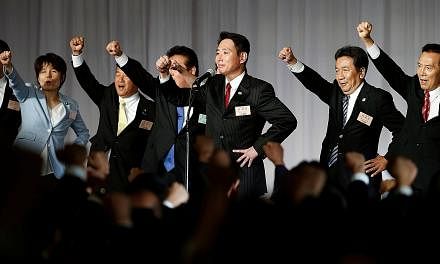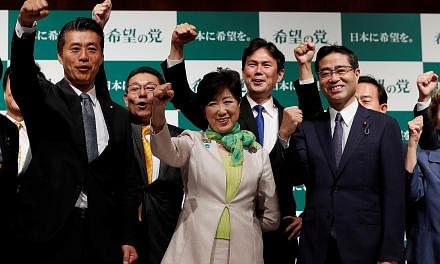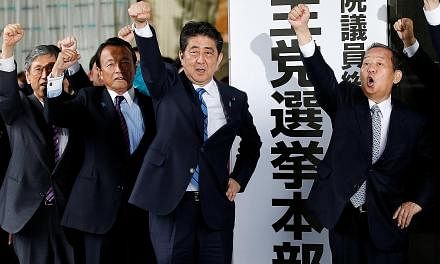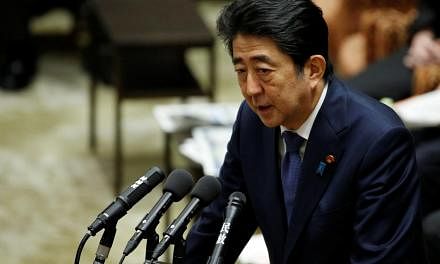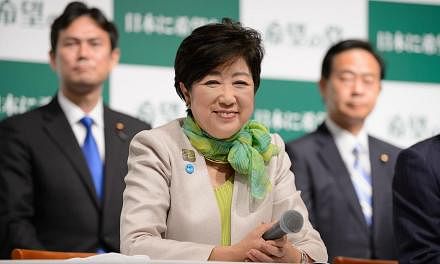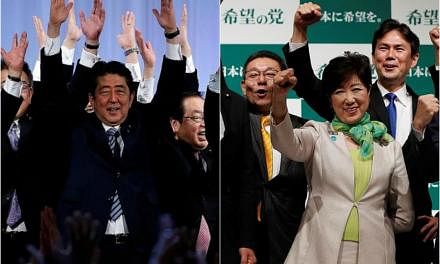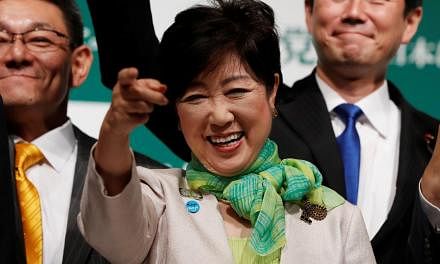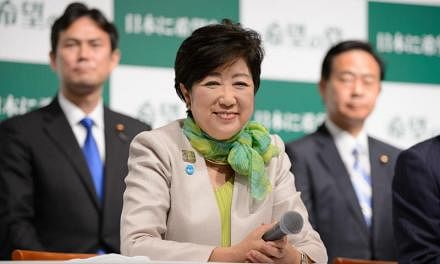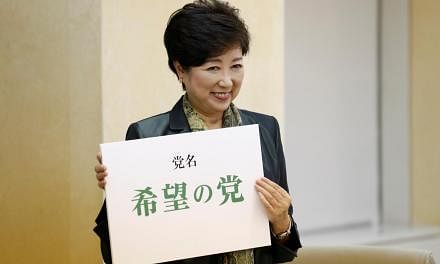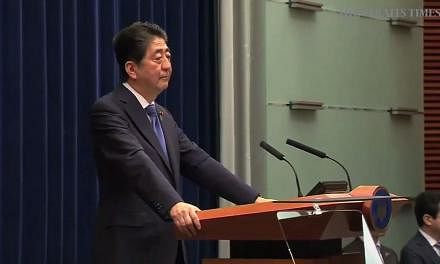TOKYO • The new party of Tokyo Governor Yuriko Koike has unveiled what it dubbed "Yurinomics" - policies to revitalise Japan's economy while cutting reliance on the aggressive spending and monetary easing that are central to Prime Minister Shinzo Abe's strategy.
Launched less than two weeks ago, Ms Koike's Kibo No To, or Party of Hope, will take on Mr Abe's ruling coalition in a national election called for Oct 22.
It has made populist calls to freeze a scheduled sales tax hike in 2019 and phase out nuclear power, as part of an effort to set itself apart from the government on key issues.
"We'll carry out 'Yurinomics' that brings out private sector vitality, without relying excessively on monetary easing and fiscal spending," the party said at a policy launch yesterday.
"While maintaining the Bank of Japan's (BOJ's) massive monetary easing for the time being, the government and the BOJ should work together to seek a smooth exit strategy," it added.
"We are taking on taboos with our ideas," Ms Koike told reporters in Tokyo. "We are including issues other parties haven't been able to tackle."
"Yurinomics" is a piece of political branding to counter "Abenomics" - the name given to the aggressive monetary and fiscal stimulus measures and structural reforms that Mr Abe has adopted since returning to power in December 2012.
Five years on, the Abe government can point to some signs that his strategy is finally fostering stronger economic growth and defeating deflation.
BOJ governor Haruhiko Kuroda still wants to give his money-printing ways more time to work, whereas Ms Koike's party wants to debate a strategy for smoothly ending the massive quantitative easing.
Mr Abe announced the snap election last week in the hope that his Liberal Democratic Party-led coalition would keep its majority in Parliament's Lower House, where it held a two-thirds "super majority" before the chamber was dissolved.
Pitched as a "reformist, conservative" alternative to Mr Abe's equally conservative LDP, Kibo No To has clouded the outlook amid signs that voters are disillusioned with him after nearly five years in power.
-
Some key points
-
• Freeze a scheduled sales tax hike to 10 per cent from 8 per cent in 2019. Scrap over-reliance on fiscal spending and monetary easing.
• Maintain the Bank of Japan's massive stimulus for the time being, but call on the government and the BOJ to work together to seek a smooth exit from ultra-loose monetary policy.
• Echo Prime Minister Shinzo Abe's calls for strict enforcement of sanctions against North Korea as a way to bring Pyongyang to the negotiating table.
• Give regional governments more autonomy in policymaking, and seek a single-chamber system in Parliament.
• End nuclear power by 2030 amid public safety worries after the 2011 Fukushima nuclear disaster.
"By putting monetary policies on the table, Koike's platform could spur debate among a lot of lawmakers about the need to fix some of the things they think are wrong, and quantitative easing could be a candidate," Mr Shuji Tonouchi, senior market economist at Mitsubishi UFJ Morgan Stanley Securities, said.
The new party said "Yurinomics" will focus on deregulation and tax firms' massive internal reserves - worth about 300 trillion yen (S$3.6 trillion) to encourage them to put unused cash to better use.
It will also freeze the scheduled sales tax hike in 2019 and help low-income households with a "basic income" policy that regularly pays a set amount of money to all citizens.
While the new party's conservative approach on defence and constitutional reform resembles that of the LDP, its economic policies have a more populist streak by focusing on distributing wealth to households, analysts said.
"Some of the economic policies seem unrealistic," said Mr Hiroshi Shiraishi, senior economist at BNP Paribas Securities.
"Basic income is being called for in some countries facing growing social inequality, so I'm not totally rejecting the idea. But, without a secure source of revenue, it's simply impossible," he added.
REUTERS, BLOOMBERG
